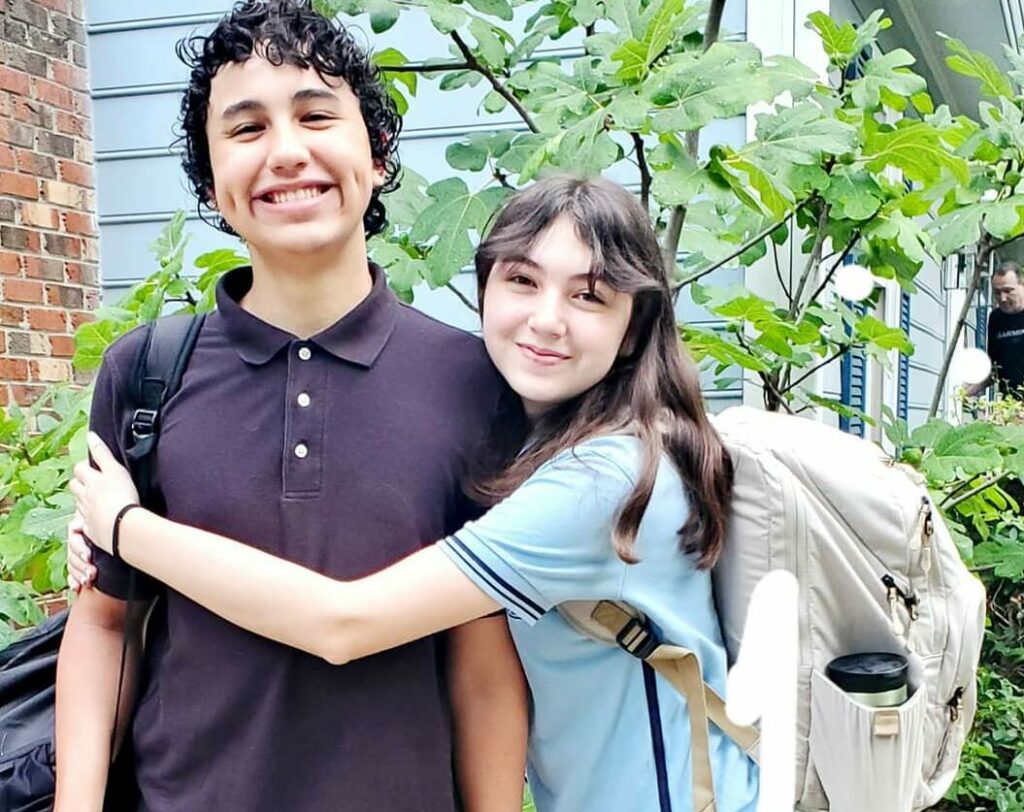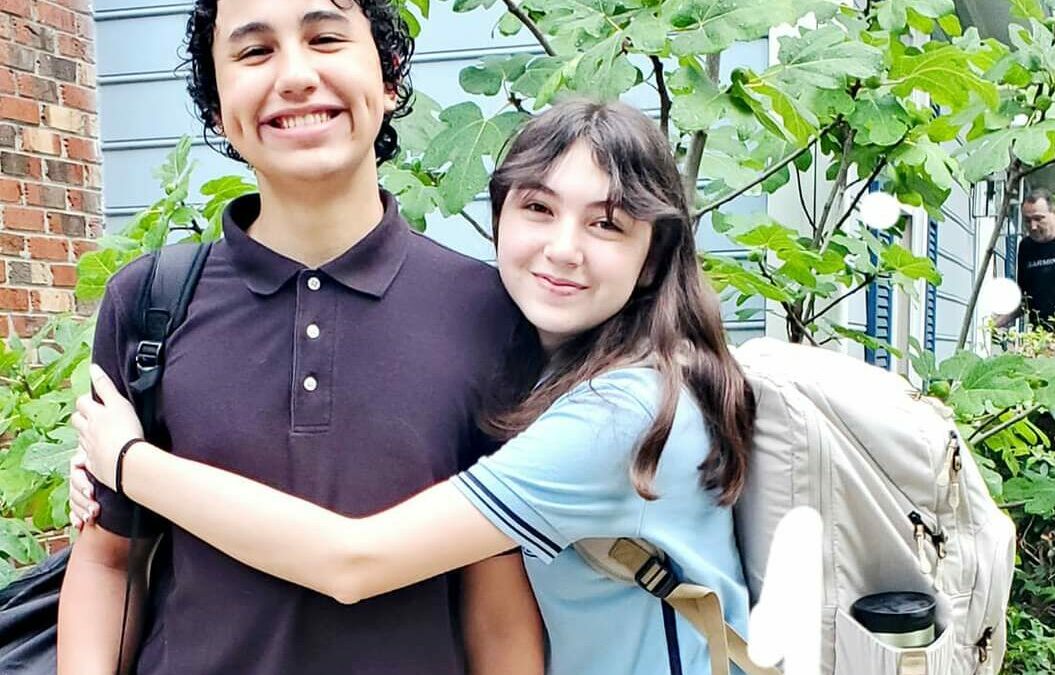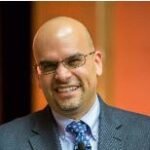 Back-to-school is an exciting time of year with the possibilities of new opportunities, friendships, and experiences. However, this time of year can also come with potential stressors and unique challenges for the students and the parents. Whether the student is a toddler going into early childhood education, or a teenager going to high school, some potential stressors in returning to school may include a disruption in the current routine, the student worrying about their grades, tests, homework, sports, fitting in, bullying, and learning difficulties. For students of immigrants, there may be the added stressors of potentially having to learn the English language or adjusting to cultural differences. Stressors could lead a student to feel isolated, depressed, or anxious. There are numerous actions that families can take to mitigate the stressors; a few include fostering resiliency by strengthening their relationships and values, as well as practicing protective factors and creating consistent routines to help the students succeed and thrive in this school year.
Back-to-school is an exciting time of year with the possibilities of new opportunities, friendships, and experiences. However, this time of year can also come with potential stressors and unique challenges for the students and the parents. Whether the student is a toddler going into early childhood education, or a teenager going to high school, some potential stressors in returning to school may include a disruption in the current routine, the student worrying about their grades, tests, homework, sports, fitting in, bullying, and learning difficulties. For students of immigrants, there may be the added stressors of potentially having to learn the English language or adjusting to cultural differences. Stressors could lead a student to feel isolated, depressed, or anxious. There are numerous actions that families can take to mitigate the stressors; a few include fostering resiliency by strengthening their relationships and values, as well as practicing protective factors and creating consistent routines to help the students succeed and thrive in this school year.
Resiliency is a value of the Latine community, and there are myriad activities families can practice to foster resiliency. Yan et al. (2021) explained how routines act as a protective factor for children’s mental development. Consistency in daily routines provides a level of security related to structure and predictability that promote self-emotion regulation. Morris et al. (2023) also discuss other protective factors:
“Protective and compensatory experiences (PACES) are related to less depression, anxiety, substance use, difficulties in emotion regulation, and life stress. Examples of PACES include supportive relationships such as unconditional love from a caregiver; having a best friend; volunteering in the community; being part of a group; and having a mentor.”
At El Futuro, we provide an avenue to help families attain these protective and compensatory experiences; through therapy and through community in the Therapeutic Garden located at the Durham office. We help families strengthen their relationships, especially with the family-centric approach. People may have a misconception that therapy is only for those who have experienced trauma or that therapy is only to talk about the past; however, at El Futuro, we focus our services towards people’s goals and dreams in life, that is why we often ask our patients, “What are your dreams?”
Every person, every student, can benefit from therapy, even if they feel they haven’t had a traumatic event or if they think they don’t ‘need it.’ Therapy can serve as a prevention or treatment for many mental health difficulties that students may be experiencing due to school or home circumstances and stressors. Seligman and Ollendick (2011) determined that cognitive behavioral therapies (CBTs) effectively treat anxiety disorders in children and adolescents.
At El Futuro, we also offer our Therapeutic Garden, where families come together and enjoy being outside, in nature, with fresh air and community. According to Jimenez et al. (2021), exposure to green space has many health benefits, including improved mental health and cognitive development for children, less psychological distress in teenagers, reduced ADHD behaviors, and decreased self-reported depression, anxiety, and stress. You don’t have to be a client to participate in the benefits of the Therapeutic Garden; everyone is welcome. Parents have expressed that they love bringing their children to the Therapeutic Garden at El Futuro because the children love to play in the creek. If you are a student or a student’s parent, remember that El Futuro is here for you, and if you feel stressed, know that you don’t have to face these stressors alone. Returning to school doesn’t have to feel like you are on a sinking ship. Specific practices like going to therapy, playing in the green space, strengthening family relationships, and creating healthier, stable routines can help families easily transition into the school year and face whatever challenges come their way more resiliently.
Article written by Candy Moreira BSN RN
______________________________________________________


 Alvely Alcántara, LCSW
Alvely Alcántara, LCSW Rossy C. Garcia, MEd
Rossy C. Garcia, MEd  Katy Sims, MD
Katy Sims, MD  Everardo Aviles, LCSW, LCAS (Eve)
Everardo Aviles, LCSW, LCAS (Eve) As a medical anthropologist and social work researcher, Dr. Gulbas’ research embodies interdisciplinarity through the integration of applied theories of health and human development with qualitative and ethnographic methodologies. Her work seeks to understand how people—children, families, and providers—navigate complex sociocultural landscapes in the pursuit of mental health. Most of her work, to date, focuses attention on developing more robust interpretations of suicide risk. With funding from the National Institutes of Mental Health, this body of research has contributed to advancements in theoretical and empirical knowledge of the broader contexts within which youth suicide risk is situated.
As a medical anthropologist and social work researcher, Dr. Gulbas’ research embodies interdisciplinarity through the integration of applied theories of health and human development with qualitative and ethnographic methodologies. Her work seeks to understand how people—children, families, and providers—navigate complex sociocultural landscapes in the pursuit of mental health. Most of her work, to date, focuses attention on developing more robust interpretations of suicide risk. With funding from the National Institutes of Mental Health, this body of research has contributed to advancements in theoretical and empirical knowledge of the broader contexts within which youth suicide risk is situated.  R. Gabriela Barajas-Gonzalez is a developmental psychologist and an assistant professor of Population Health at NYU Grossman School of Medicine. Dr. Barajas-Gonzalez is the principal investigator of a study that examines the impact of immigration-related threat and stress on school communities. She earned a PhD in developmental psychology from Columbia University and hold a BA in human biology from Stanford University. Dr. Barajas-Gonzalez is the daughter of Mexican immigrants and a first gen college student.
R. Gabriela Barajas-Gonzalez is a developmental psychologist and an assistant professor of Population Health at NYU Grossman School of Medicine. Dr. Barajas-Gonzalez is the principal investigator of a study that examines the impact of immigration-related threat and stress on school communities. She earned a PhD in developmental psychology from Columbia University and hold a BA in human biology from Stanford University. Dr. Barajas-Gonzalez is the daughter of Mexican immigrants and a first gen college student. Dr. Parra-Cardona is an Associate Professor in the Steve Hicks School of Social Work (SHSSW) at the University of Texas at Austin. At the SHSSW, he serves as Coordinator for Mexico and Latin American initiatives. He also serves as Area Director for Research at the UT Austin Latino Research Institute. Dr. Parra-Cardona’s program of research is focused on the cultural adaptation of evidence-based parenting interventions for low-income Latinx populations in the US and Latin America.
Dr. Parra-Cardona is an Associate Professor in the Steve Hicks School of Social Work (SHSSW) at the University of Texas at Austin. At the SHSSW, he serves as Coordinator for Mexico and Latin American initiatives. He also serves as Area Director for Research at the UT Austin Latino Research Institute. Dr. Parra-Cardona’s program of research is focused on the cultural adaptation of evidence-based parenting interventions for low-income Latinx populations in the US and Latin America. Bianka Reese, PhD, MSPH is a research scientist and program evaluator specializing in adolescent and young adult sexual and reproductive health. Her previous research in the experiences of Latinx LGBTQ+ youth stems from her work as the Research and Evaluation Manager at SHIFT NC (Sexual Initiatives For Teens), where she led largescale evaluations of multilevel, community-based sexual health promotion initiatives and research projects aimed at elevating the voices of diverse youth in North Carolina. Dr. Reese is currently the Senior Research Strategist at Creative Research Solutions, LLC, an award-winning national evaluation, research, and assessment firm.
Bianka Reese, PhD, MSPH is a research scientist and program evaluator specializing in adolescent and young adult sexual and reproductive health. Her previous research in the experiences of Latinx LGBTQ+ youth stems from her work as the Research and Evaluation Manager at SHIFT NC (Sexual Initiatives For Teens), where she led largescale evaluations of multilevel, community-based sexual health promotion initiatives and research projects aimed at elevating the voices of diverse youth in North Carolina. Dr. Reese is currently the Senior Research Strategist at Creative Research Solutions, LLC, an award-winning national evaluation, research, and assessment firm. Tania Connaughton-Espino, MPH is an independent researcher focused on adolescent and young adult sexual and reproductive health. Her interest in the experiences of Latinx LGBTQ+ youth stems from her previous work with SHIFT NC (Sexual Initiatives For Teens), where she led the training and evaluation department, conducted capacity-building workshops for youth serving professionals including on the topic of how to be more affirming of LGBTQ youth, and from her extensive experience working with the Latinx population in NC.
Tania Connaughton-Espino, MPH is an independent researcher focused on adolescent and young adult sexual and reproductive health. Her interest in the experiences of Latinx LGBTQ+ youth stems from her previous work with SHIFT NC (Sexual Initiatives For Teens), where she led the training and evaluation department, conducted capacity-building workshops for youth serving professionals including on the topic of how to be more affirming of LGBTQ youth, and from her extensive experience working with the Latinx population in NC. Maru Gonzalez, EdD is an Assistant Professor and Youth Development Specialist in the Department of Agricultural and Human Sciences at North Carolina State University. Her areas of inquiry include youth development with a focus on activism, social justice, and the experiences of LGBTQ+ young people across familial, school, and community contexts.
Maru Gonzalez, EdD is an Assistant Professor and Youth Development Specialist in the Department of Agricultural and Human Sciences at North Carolina State University. Her areas of inquiry include youth development with a focus on activism, social justice, and the experiences of LGBTQ+ young people across familial, school, and community contexts.  Nayeli Y. Chavez-Dueñas, PhD
Nayeli Y. Chavez-Dueñas, PhD Hector Y. Adames, PsyD
Hector Y. Adames, PsyD